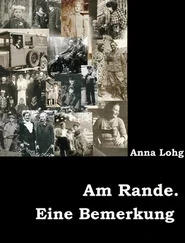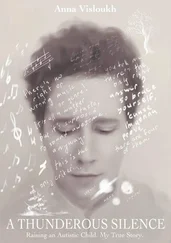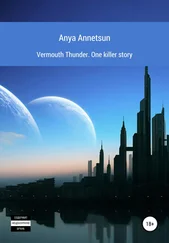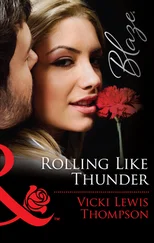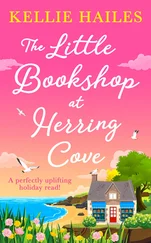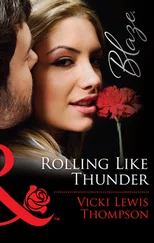But I’m hardly conscious of him. It’s the woman who’s attracted all my attention.
Koliuzhi Klara.
She wears a cedar dress so new that it blouses around the belt. Her hair’s been cut. It now falls to her shoulders, barely long enough to tie back. One stubborn strand whips across her face. She’s wearing soft brown shoes made of animal hide. When they arrive, she smirks and says, “Wacush.”
I attempt my own smirk. “Wacush,” I answer back. She laughs.
“What are you doing here?” I say. She should be with the Tsar and the Chalats. And Maria.
“Ahda,” she says, and then begins to speak. When she’s finished, I smile, but she’s knows I haven’t understood anything.
Holpokit says, “Kitaxásdo, wiwisaťsόpat. Tix walísdo  wálo lobá
wálo lobá  a.”
a.” [50] Come on, ladies. We have to get home.
Then, he turns and heads back toward the houses. After he takes a few steps, Koliuzhi Klara grabs my arm and pulls. “Where are we going?”
She says something, and it’s not “wacush.” I go with her.
Digging roots is as repetitive as hauling water and collecting firewood. Squatting on the damp earth with a slender tool, I work my way across meadows in the pale sunshine of early summer, overturning lumps of soil. Despite having the digging tool, I follow the ways of Koliuzhi Klara and the other women and finish extracting each root with my fingers. Dirt lodges beneath my fingernails and when they split, I return to the digging tool. By midday, it’s already hot. The grass sways and the insects buzz and the air doesn’t move. The glare off the bright green meadow makes me long for the sombre shade of the forest. The baskets fill slowly.
The roots we dig are from the same brown lilies that grew all around my house in Novo-Arkhangelsk last summer. Their heads nodded so beguilingly in the breeze that blew onshore, and I tried to encourage their growth, pulling back the weeds that grew over them, adding a cup of water when the earth seemed dry—though that wasn’t often, thanks to the rain. Their season seemed so short.
I hadn’t known the roots were edible. If I had, we’d have been eating them. I could have put them in my piroshki. They’re white clusters smaller than the Spanish potatoes I ate at Makee’s and they break apart into little fragments like the dough of pastry.
While we’re in the meadow, we dig another root as well. Koliuzhi Klara shows me a plant with long roots that are thin and straight, like nails that have been hammered into the earth. They take much longer to dig out.
As she’s showing me, a little girl jumps all over her, playing with her hair, tickling her, stealing her tools, until Koliuzhi Klara leaps at her with a roar, trying to grab her. The girl dashes away with a squeal. But she returns a few moments later and helps dig up the long roots. She flicks the freshly dug earth at Koliuzhi Klara, making sure each handful stops just short of hitting her. Koliuzhi Klara ignores her.
Back at the houses, we wash the roots and lay them in firepits for a long time and a short time. As they roast, they give off a nutty aroma that renews my nausea. I go away from the firepit to where some children are playing.
They sit in a circle around a heap of fern fronds. A boy inhales deeply then picks up one of the ferns. He says, “Pila,” and pulls one leaf from the frond. “Pila,” he says again, and plucks another leaf. “Pila. Pila. Pila,” he repeats, pulling off one leaf each time he says the word. The children lean in and count as he plucks. When he finishes one frond, he picks up another. When he’s running out of breath, his plucking grows furious. “Pila. Pila. Pila!” he gasps. He throws what’s left of the frond down and falls backward, gulping in mouthfuls of air. The children cheer and laugh, then recount the leaves he’s torn off. I try to keep up. I think they reach forty-seven.
Next, a little girl gets a turn. It’s the same girl who was digging roots with me—the one who jumped all over Koliuzhi Klara. “Pila. Pila. Pila. Pila,” she cries, wisely keeping her voice soft and her head down. Her fingers fly, and the leaves collect in front of her. “Pila. Pila. Pila,” she continues. The pile grows. The boy whose turn is finished leads the count. Finally, she gasps her last “pila,” and with a flourish, throws down the nearly bare stem.
Fifty-two.
The children cheer. The boy leaps up.
“Wacush!” I blurt. The children turn, some surprised to see me. They laugh and tease the girl. The boy holds out a frond to me.
They make room for me in the circle. I sit and look over the heap of fronds. I smile. Perhaps one is my mother’s fiery fern. She’d be disappointed, I think, to discover that her rare and divine fern did not require a journey across the thrice ninth land, but was so easy to find and pick, it was part of a children’s game, and that they treated it no differently than any other fern frond.
I choose one and slide it from the pile. I twirl it in my fingers. It will do.
Finally, I inhale, and I pluck a leaf. “Pila,” I say. And I pluck and pluck, quietly repeating, “Pila. Pila. Pila.” When I think I won’t be able to go another second without breathing, I cry my last “pila” and throw down all that’s left of my frond.
Twenty-nine.
“Wacush,” says the girl and everyone laughs.
When evening comes, and the meal is ready, I’m still repelled by the smell of the roasted roots, so I offer my share to the carpenter Kurmachev.
He divides it in two, and tosses some to the American.
“You’ve taken the biggest serving for yourself,” cries John Williams.
“What are you talking about? I have not.”
“Yes you did—you swine!”
“I did not! Madame Bulygina—you saw, didn’t you?”
“Hush,” I say, before their voices grow any louder. “There’s enough for both of you. Stop behaving like children.”
Before there can be any further debate, Kurmachev pops all his roots into his mouth and chews. The nutty aroma wafts over, and I turn away.
When I do, I find Koliuzhi Klara watching us. She’s kneeled before the tray she shares with the others. Her eyes flit from me to Kurmachev to John Williams. They stay there. Focused on the American. She stares for so long that, if he was aware of it, he’d be uncomfortable. She’s not yet become accustomed to his red hair, or his pale eyes and skin. No one has.
John Williams runs his fingers around the section of the tray in front of him, picking up whatever fragments of fish are left. He chews while he goes back again in case he missed something. He’s blind to Koliuzhi Klara’s intense scrutiny.
Then the little girl pops up out of nowhere, and with a shriek, leaps on Koliuzhi Klara. Koliuzhi Klara cries out and reaches for the tray to steady it and prevent it from spilling. The girl rolls to the ground, then curls into and presses her body tight against Koliuzhi Klara, who looks bemused. She finally nudges the girl away—but not far away—and only then she begins eating.
Jumpy and doe-eyed, the little girl is just like a rabbit. I name her Zaika.
Koliuzhi Klara comes for me after the morning meal. She has no baskets or tools. We head toward the sea, accompanied by five young women, all carrying paddles. The women chatter as we head toward the canoes.
Читать дальше
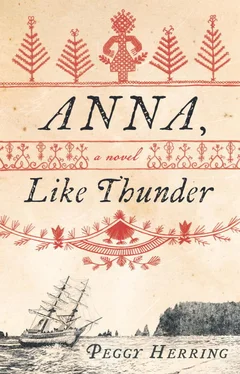
 wálo lobá
wálo lobá  a.”
a.” 

